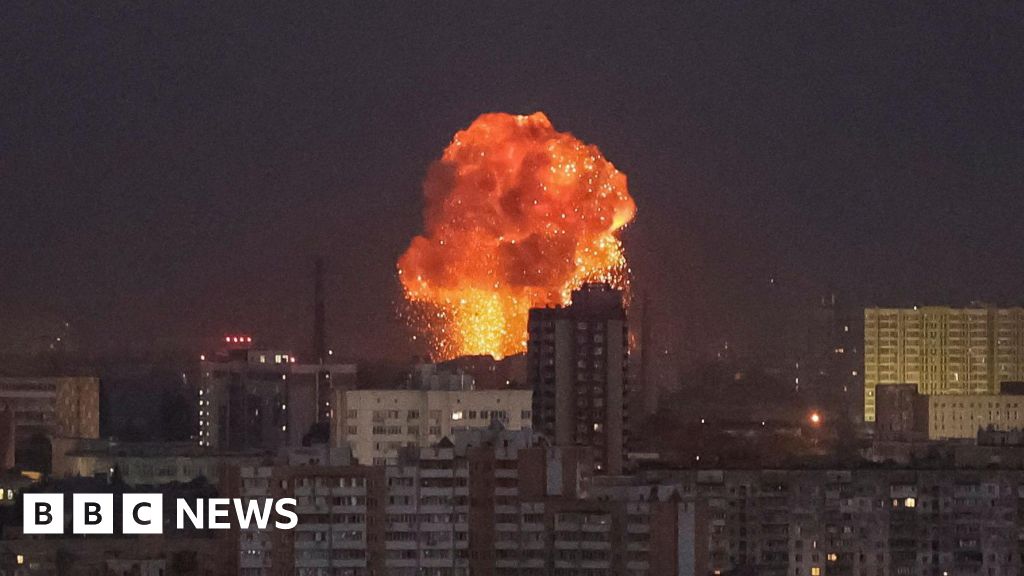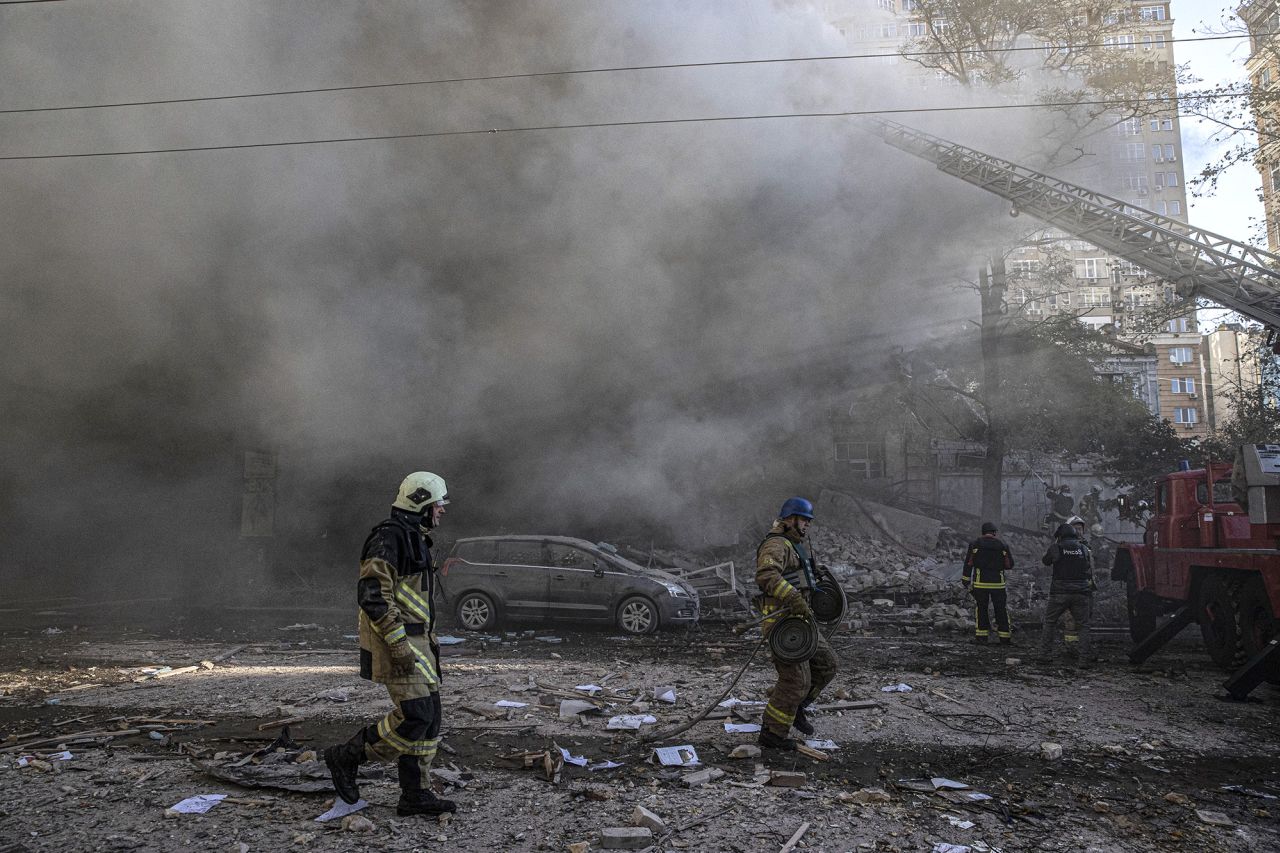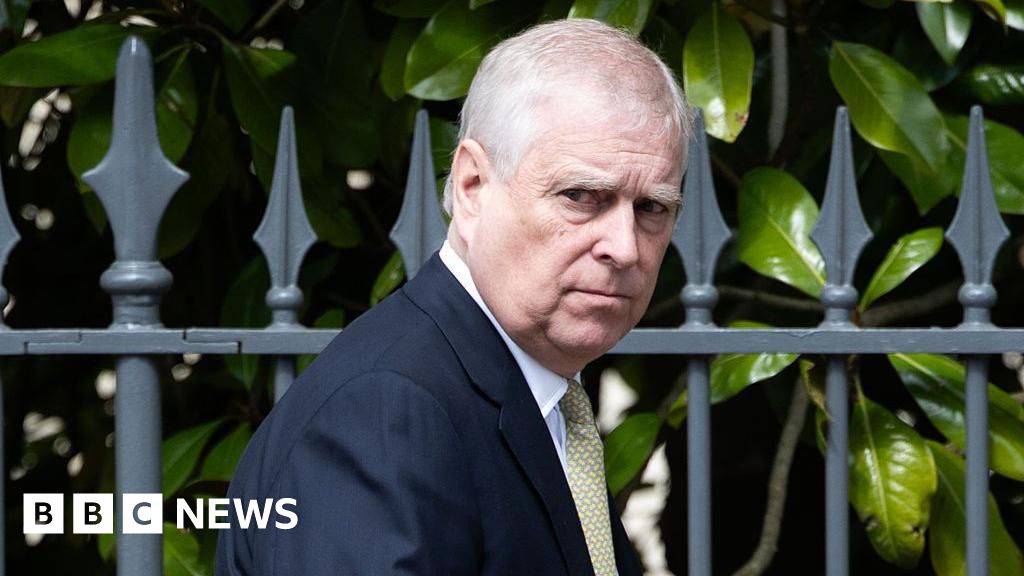Tragic Loss and Ongoing Conflict: The Tensions Between Russia and Ukraine

Introduction
Ukraine has suffered a tragic loss as an F-16 pilot was killed and his jet crashed during one of Russia's biggest ever aerial attacks. The Ukrainian military reported that hundreds of drones and scores of missiles were launched by Russia, resulting in the death of the pilot and destruction of his jet.
Background
This recent attack is just the latest in a series of deadly assaults between Russia and Ukraine. In a similar incident, Russia launched waves of drones and ballistic missiles at multiple targets across Ukraine, causing chaos and destruction in the capital and injuring dozens of people. Despite President Trump's criticism of Russian President Vladimir Putin, the attacks have continued, with both countries engaging in long-range cross-border drone attacks.
Current Scenario
In the midst of these ongoing attacks, both countries have also been engaged in peace talks, but they have made little progress in ending the conflict. President Volodymyr Zelenskyy of Ukraine has urged the U.S. to put more pressure on Putin to achieve a peaceful resolution. NATO diplomats, including U.S. Secretary of State Marco Rubio, have also met to discuss a plan for a summit of alliance leaders to address the ongoing conflict.
In response to the attacks, Ukraine has launched a large-scale operation, codenamed "Spiderweb," targeting several Russian air bases deep inside the country. This operation has resulted in the destruction of multiple combat planes, according to the Ukrainian Security Service. The Ukrainian Air Force has also reported "ballistics on Kyiv," causing air defense measures to be activated in the capital city. In another incident, two bridges have collapsed in Russia's western regions bordering Ukraine, resulting in the death of at least seven people and injuring dozens more.
Conclusion
The ongoing tensions between Russia and Ukraine have resulted in tragic losses and destruction for both countries. While peace talks continue, the conflict shows no signs of resolution. As the world watches and waits for a solution, the people of Ukraine and Russia continue to suffer the consequences of this ongoing conflict. Only time will tell if a peaceful resolution can be achieved and put an end to this deadly and destructive cycle of attacks.
About the People Mentioned
Volodymyr Zelenskyy
Volodymyr Oleksandrovych Zelenskyy, born on January 25, 1978, in Kryvyi Rih, Ukraine, is a Ukrainian politician and former entertainer. He is the sixth president of Ukraine, having taken office in 2019. Before entering politics, Zelenskyy was a well-known comedian, actor, screenwriter, film producer, and director. He graduated with a law degree from Kyiv National Economic University in 2000 but never practiced law. Instead, he co-founded the production company Kvartal 95, which produced films, cartoons, and TV shows, including the popular series "Servant of the People," where he played a fictional Ukrainian president. Zelenskyy's political career began when he announced his candidacy for the 2019 presidential election on New Year's Eve in 2018. He positioned himself as an anti-establishment and anti-corruption figure, which resonated with the public. He won the election with a landslide victory of 73.23% in the second round, defeating incumbent President Petro Poroshenko. Upon taking office, Zelenskyy dissolved the Verkhovna Rada and called for snap elections, which resulted in his party, Servant of the People, gaining an absolute majority in parliament. As president, Zelenskyy has faced significant challenges, including the ongoing conflict with Russia. His leadership during the full-scale Russian invasion of Ukraine, which began in February 2022, has made him a global figure of resistance. He has been recognized for his efforts, including being named Time Magazine's Person of the Year in 2022. Zelenskyy is married to Olena Zelenska and has two children. His presidency has been marked by a strong focus on national unity and international diplomacy to secure support for Ukraine during the ongoing conflict.
Vladimir Putin
Vladimir Putin is the current President of Russia, a position he has held for multiple terms since 2000, with a brief interlude as Prime Minister from 2008 to 2012[1][3]. Born in Leningrad (now Saint Petersburg) in 1952, Putin began his career in the Soviet Union’s security services, joining the KGB in 1975 and rising to the rank of Lieutenant Colonel by the time he left in 1991, following postings in East Germany and Leningrad[4]. After the Soviet Union’s collapse, he transitioned into politics, serving as an adviser to Saint Petersburg Mayor Anatoly Sobchak and later moving to Moscow, where he held various administrative roles under President Boris Yeltsin[6]. Putin was appointed Prime Minister in August 1999 and became acting President when Yeltsin unexpectedly resigned that December[3][6]. He won his first presidential election in March 2000, promising to stabilize Russia’s economy and political system after the tumultuous 1990s[3][7]. During his initial terms, he centralized power, reasserted federal control over Russia’s regions, and curtailed the influence of the country’s oligarchs through legal and economic measures[7]. Putin was re-elected in 2004 but, due to constitutional term limits, stepped aside in 2008, becoming Prime Minister under his successor Dmitry Medvedev, while retaining significant influence[3]. Constitutional amendments later extended presidential terms, and Putin returned to the presidency in 2012[1]. Putin’s time in office has been marked by assertive foreign policy, including military interventions in Syria in support of President Bashar al-Assad and the 2014 annexation of Crimea, which led to international sanctions[1]. Domestically, his tenure has seen increased state control over media, the suppression of political opposition, and constitutional changes consolidating executive authority[1]. In 2022, Russia’s full-scale invasion of Ukraine triggered a major international crisis, further isolating Russia from the West and prompting widespread condemnation[1]. As of 2025, Putin remains a dominant figure in Russian politics, having secured another term in office through constitutional changes that allow him to potentially remain president until 2036[1]. His leadership continues to shape Russia’s domestic trajectory and its role in global affairs, amid ongoing conflict in Ukraine and strained relations with NATO and Western countries[1].
Marco Rubio
Marco Rubio is an American politician born on May 28, 1971, in Miami, Florida, to Cuban immigrant parents. He gained prominence as a leading figure in the Republican Party and currently serves as the 72nd U.S. Secretary of State, a position he assumed in January 2025 after unanimous Senate confirmation[1][3]. Rubio's political career began in Florida, where he served as a city commissioner in West Miami and later as the Speaker of the Florida House of Representatives. During his tenure as Speaker, he implemented several reforms, including compiling "100 Innovative Ideas for Florida's Future," which led to significant legislative changes[2]. He was elected to the U.S. Senate in 2010, representing Florida until 2025. Rubio has been a key voice in U.S. foreign policy, particularly concerning Latin America, China, and the Middle East, and has championed bipartisan legislation on issues like immigration and human rights[1][4]. Rubio gained national attention for his role in the bipartisan "Gang of Eight" immigration reform effort and his 2016 presidential campaign, which ended with his endorsement of Donald Trump in the Florida primary[1][3]. He has also been a proponent of conservative populism, aligning himself with Trump's policies[3]. Recently, Rubio was nominated by Trump to serve as Secretary of State and, in April 2025, was also named acting National Security Advisor[3]. Rubio is married to Jeanette Dousdebes Rubio, and they have four children together. He holds a bachelor's degree from the University of Florida and a law degree from the University of Miami School of Law[4]. His appointment as Secretary of State marks a significant milestone, as he is the first Latino to hold the position[1].
About the Organizations Mentioned
NATO
The **North Atlantic Treaty Organization (NATO)** is a transatlantic military alliance founded in 1949 to secure peace in Europe and protect democratic nations from Soviet aggression. It began with 12 founding members and has expanded to include 32 countries across North America and Europe as of 2025, including recent additions Finland (2023) and Sweden (2024)[1][3]. NATO's core principle is collective defense, meaning an attack against one ally is considered an attack against all, enshrined in Article 5 of its founding treaty[3]. Originally established as a Cold War bulwark, NATO has evolved beyond its initial Euro-Atlantic focus, engaging in missions worldwide, such as in Afghanistan and Libya[1]. The alliance remains central to U.S.-Europe military cooperation and has adapted to new security challenges, particularly Russia’s 2022 invasion of Ukraine, which has significantly reshaped NATO’s priorities. This aggression has spurred increased defense spending, stronger collective deterrence efforts, and accelerated Ukraine’s path toward potential membership[1][4]. In June 2025, NATO held its first summit in the Netherlands, where leaders agreed on raising defense spending targets to 5% of GDP—split between 3.5% for core defense and 1.5% for related security costs, including support for Ukraine. This marked a historic commitment to bolster the alliance’s military capabilities amid evolving global threats. The summit also emphasized eliminating defense trade barriers and reaffirmed the ironclad commitment to collective defense[2][5]. NATO’s ongoing significance lies in its role as a strategic security platform fostering cooperation among member states, responding to geopolitical instability, and adapting to emerging threats like terrorism and cyber warfare[4]. Its "open door" policy continues to invite eligible European democracies to join, reinforcing its mission to safeguard peace, democracy, and shared technological and defense innovations across allied nations[1][4].
Ukrainian Security Service
The **Security Service of Ukraine (SBU)** is Ukraine’s principal state security agency tasked with protecting national sovereignty, state security, and constitutional order. Established on March 25, 1992, as the successor to the Ukrainian KGB branch following Ukraine’s independence, the SBU combines law enforcement, counterintelligence, and intelligence functions[2][1]. It reports directly to the President of Ukraine and plays a vital role in internal security, counterterrorism, counterintelligence, cybersecurity, and protection of state secrets, acting similarly to the FBI or MI5 in Western countries[3][2]. The SBU’s broad mandate includes combating terrorism, corruption, organized crime, espionage, and other threats to public security. It gathers intelligence and provides security for key government institutions, including the President and Parliament. Its operational scope extends to surveillance, investigations, safeguarding encrypted government communications, and countering hybrid warfare tactics, especially those employed by Russia amid ongoing conflict[1][4]. The agency has wide legal powers, including premises entry, detention, and carrying weapons, though these powers are subject to oversight by the Prosecutor General to ensure legality[1][2]. Significant reforms in 2019 aimed to increase transparency, reduce internal corruption, and shift some responsibilities—like organized crime—to other agencies, reflecting a strategic focus on combating Russian hybrid warfare and cyber threats[3]. The SBU employs approximately 27,000 personnel and is gradually downsizing to improve efficiency and civilian oversight[3][5]. Among its notable achievements is the arrest of Viktor Medvedchuk, a prominent pro-Russian oligarch, demonstrating its critical role in countering internal political threats aligned with foreign adversaries[4]. The SBU also leverages advanced technology, including unmanned aerial vehicles (UAVs) and cyber tools, to enhance intelligence collection and operational effectiveness. Its multifaceted approach integrates military counterintelligence, anti-terrorism, and cybersecurity efforts to safeguard Ukraine’s statehood during
Ukrainian Air Force
The **Ukrainian Air Force (UAF)**, established on March 17, 1992, emerged from the vast Soviet aviation assets left in Ukraine after the USSR’s dissolution, inheriting one of the largest air fleets globally, second in Europe only to Russia and the US[5][6]. Initially equipped with over 2,000 aircraft including fighters like MiG-21, MiG-29, and Sukhoi jets, as well as strategic bombers such as the Tu-160, the UAF was capable of a full range of air power roles including nuclear strategic attack[6][7]. However, Ukraine relinquished its nuclear arsenal and strategic bombers in the 1990s under the Budapest Memorandum, drastically reducing its air strike capabilities[6]. The UAF’s core missions include protecting Ukrainian airspace, defeating enemy air forces, supporting ground troops via air assault and reconnaissance, and conducting airlift operations[2]. A major reform in the early 2000s merged the Ukrainian Air Defence Forces (established from the Soviet 8th Air Defence Army) into the Air Force, creating a streamlined tri-service structure aimed at enhancing operational effectiveness and eliminating redundant command layers[2][4]. Modernization efforts focus on developing a smaller, mission-ready force by improving pilot skills, updating aircraft and armaments, and optimizing force deployment[2]. Despite post-Soviet downsizing and budget constraints, the UAF maintains a diverse fleet including fighters, attack aircraft, transport planes, trainers, and helicopters, with roughly 318 aircraft and 200,000 personnel as of recent estimates[7]. Notably, Ukrainian pilots have gained international recognition for their skill, with aerobatic champions like Colonel Mykola Koval enhancing the Air Force’s prestige[5]. Since the 2014 Russian annexation of Crimea and the ongoing Russo-Ukrainian War, the UAF has been critical in defending Ukrainian sovereignty. It has undergone significant modernization, increased NATO cooperation
















